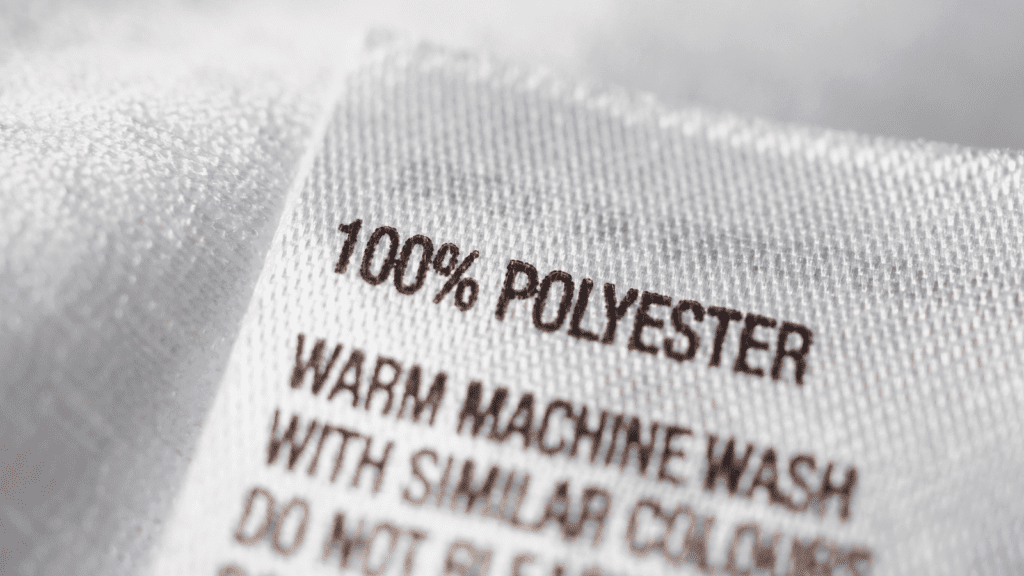Man-made fabrics like acrylic, polyester, rayon, acetate, and nylon are treated with thousands of harmful toxic chemicals and involves significant energy consumption during production.
Fast fashion is a term that refers to the production of cheap, trendy clothing that is quickly manufactured and sold in large quantities. The rise of fast fashion has had a significant impact on the fashion industry, but it has also had a significant impact on the environment. The synthetic materials, such as nylon and polyester, that are commonly used in fast fashion clothing are particularly problematic due to their carbon emissions and their contribution to environmental pollution.
RELEVANT SUSTAINABLE GOALS




Synthetic fibers are hurting our planet
Nylon and polyester are made from fossil fuels, specifically crude oil and natural gas. The production of these synthetic materials involves significant energy consumption, which leads to the release of large amounts of carbon dioxide into the atmosphere. According to the United Nations, the textile industry is responsible for 10% of global carbon emissions, with synthetic materials like nylon and polyester being a significant contributor.
The production process of nylon and polyester is also known to release other harmful pollutants. For example, the production of nylon involves the release of nitrous oxide, a potent greenhouse gas that is over 300 times more harmful than carbon dioxide. Polyester production also involves the release of various chemicals, including formaldehyde, which is known to be carcinogenic.
In addition to their carbon emissions, nylon and polyester also contribute to environmental pollution. These synthetic materials are not biodegradable, meaning they do not break down in the environment. As a result, when fast fashion clothing made from these materials is discarded, it can take hundreds of years for them to decompose. This leads to environmental pollution, with discarded clothing taking up space in landfills and contributing to the buildup of plastic waste in our oceans and waterways.
It can take up to 200 years for polyester to biodegrade, so it not only pollutes during its manufacturing process but also sits in landfill, leaching chemicals into the earth for a long time.
But the environmental impact doesn’t stop there.
When polyester is washed, it sheds microfibers that contribute to even more plastic pollution in our oceans. These tiny fibers are so small that they often pass through water filtration systems and pollute our drinking water.
What About Recycled Polyesters ?
Although recycled polyester is frequently touted as a sustainable alternative to conventional polyester, its eco-friendliness may not be as straightforward as it seems. Essentially, recycled polyester is produced by breaking down old polyester fabrics, along with PET plastic bottles, and then reforming them into new fibers.
While using recycled polyester does provide certain environmental benefits, such as the fact that it doesn’t require additional petroleum, helps minimize plastic waste, and is less energy-intensive than virgin polyester, it also has a few drawbacks.
For one, recycled polyester often still contains the harmful chemicals that are present in standard polyester. Additionally, although the recycling process is less harmful than the manufacturing of traditional polyester, it still necessitates a considerable amount of energy and generates some pollution. Lastly, it’s worth noting that Bisphenol A (BPA), which is present in some plastic bottles, could potentially find its way into recycled polyester garments. This is an issue because, as Mayo Clinic has reported, “Exposure to BPA is a concern due to possible health effects on the brain and prostate gland of fetuses, infants, and children.”
What It’s Time To Slam The Brakes On Synthetic Fibers and Fast Fashion
There are some steps that can be taken to reduce the environmental impact of fast fashion. One solution is to use more sustainable materials, such as organic cotton, linen, or wool, which have a lower carbon footprint and are biodegradable. Another solution is to reduce the overall amount of clothing that is produced and consumed, which would help to decrease the demand for fast fashion and ultimately reduce its impact on the environment.
In conclusion, the production of synthetic materials like nylon and polyester used in fast fashion clothing is a significant contributor to carbon emissions and environmental pollution. It is important that we take steps to address the environmental impact of fast fashion, both through the materials we choose to use and by reducing the overall amount of clothing that is produced and consumed. By doing so, we can help to create a more sustainable fashion industry that is kinder to the planet.
You may also be interested in :
Trashion : Uncovering The Dire Consequences Of Exporting Plastic Clothes Waste To The Global South



